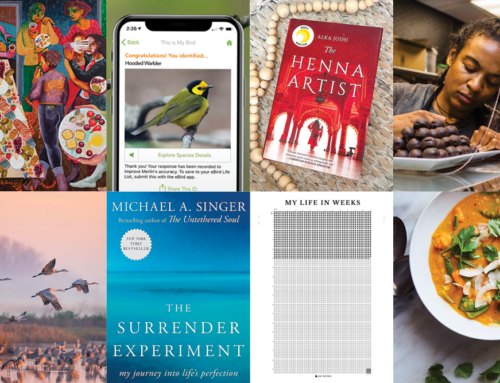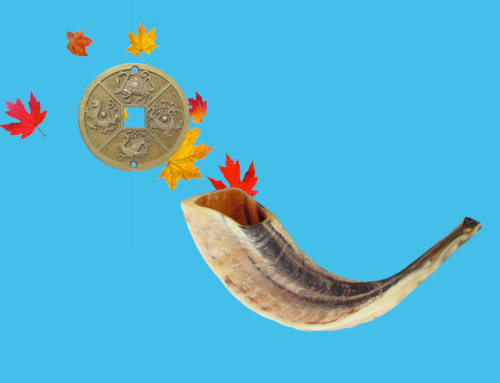Photo by Annie Spratt
Lately in the treatment room, patients are reporting feeling extreme fatigue, lack of motivation, and depression. This admission is typically followed by the question, “what’s wrong with me?” Nothing is wrong! For many of us, our nervous systems have been under stress for a long period of time and this can have a significant impact on our health. The remedy is to lean into the wisdom of the season and allow ourselves the space to rest. This year, it’s more important than ever.
Rest
According to TCM, much like many animals in nature, Winter is the time to hibernate, conserve energy, and rest more than normal. Chinese Medicine and East Asian wisdom teaches the importance of restorative, passive, or “yin” aspects of the human experience. We are so action-oriented that many of us find it difficult to value rest and the role it plays. Imagine if we always exerted energy but never restored it? What if we viewed resting as part of the action? I would argue that rest creates momentum so that when it’s time to act, the action is more powerful. Just like a car can’t run on an empty gas tank, neither can we. Taking time to recharge is simply a necessity.
Especially if you’re feeling a bit more tired and introspective than usual, I encourage you to rest. Create time and space to reflect, journal, meditate, and be still. I know this may be challenging. For many of us, our value is inherently tied to our productivity. There is a lot of external pressure to push through and always be “doing,” with little to no value placed on “being.” Take a page from Chinese Medicine and allow yourself time to rest, reflect and release. For some of us extended periods of time to rest may be more accessible than others. If you find it difficult to carve out a longer time to rest, consider finding even just five minutes a day to prioritize stillness or quiet. For additional context, and to better understand the why behind this, let’s look at the three major aspects of the season.
Organs: Kidney and Bladder
In TCM, the Kidneys and Bladder assist in determining what our body needs and what can be excreted as waste via urination. They play an important role in the movement and metabolism of fluids throughout the body. The Kidneys are one of the most important systems in the body because they provide a strong foundation, much like the foundation of a house. They store our Yuan Qi, i.e. our essence as human beings. They are involved in reproduction, development, growth, and bone health. Anatomically, the Kidneys are also associated with the adrenal glands, which sit on top of each kidney and play an important role in our stress response. It goes without saying that for many of us, our adrenals are being tested and overworked at the moment.
Element: Water
Water is a beautiful and interesting element as it can take on so many different forms. It can be rushing and powerful, or smooth and still. It can flow freely, be frozen, or evaporate into tiny particles. The dynamic nature of water is different from other elements. The water element, in its most balanced form, is able to conform to different expressions and go with the flow. Channel the energetics of water by listening to how your body is responding to outside forces. Let your body tell you what it needs, rather than resisting.
Emotion: Fear
Fear is a prevalent emotion for many of us right now and rightfully so. It is the corresponding element of Winter, as Alexandra shares in her blog, Winter + The Kidney + Fear: An Interpretation. Over the course of the last year, many of us have experienced ups and downs with our basic needs and security under threat. Fear is an innate survival mechanism that is an autonomic response to this experience. Many of the reasons we are experiencing fear right now feel beyond our control. The overarching question to ask is, How can I feel more safe and how can I create that within myself?
Nourish
Nutrition for Winter
In addition to rest, winter is the optimal time to build our internal reserves and replenish our bodies.
A core philosophy in Chinese Medicine nutrition and herbalism is to balance the internal body with the external climate. Consider the winter months – this time of year is colder and drier. In response, we must make an effort to keep our body warm and moist. And because this is the most yin time of year, this is the season to choose yin-nourishing foods. With that in mind, here are some overarching tips for Winter eating:
- Warm foods, preferably cooked at long and slow and at low temperatures
- Bone broth or broth-based soups
- Stews
- Mushrooms
- Warming spices: ginger, turmeric and cinnamon
- Grains like barley and millet
- Black foods such as black sesame seeds, black beans, forbidden black rice, blueberries
- Nuts and dried foods
- Salt, miso, soy sauce and seaweed
- Steamed winter greens
For more in-depth info about foods to eat during the Winter, check out Winter – Eating with the Seasons by April Crowell and Yin Nourishing Foods by Tanya Keam. And, for a great winter dish, check out Mary’s delightfully delicious Jammed Yams recipe.





